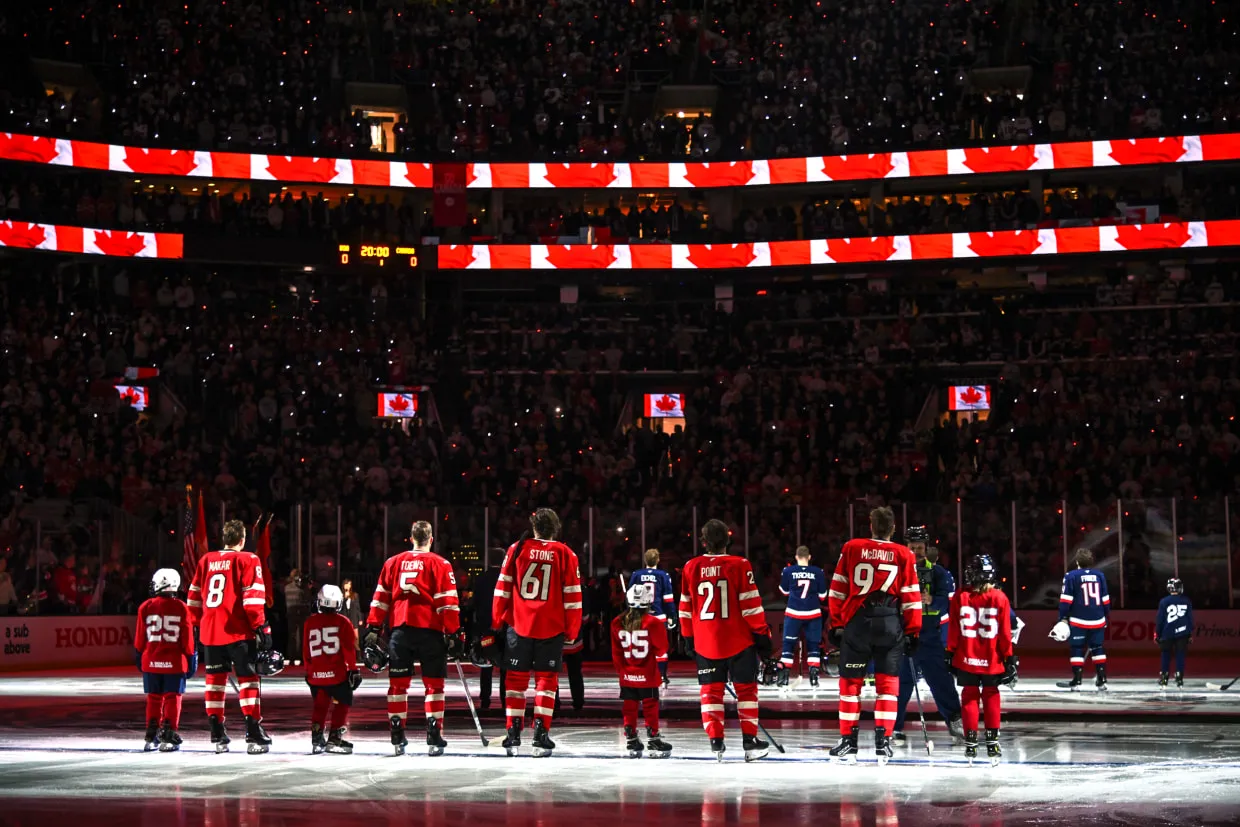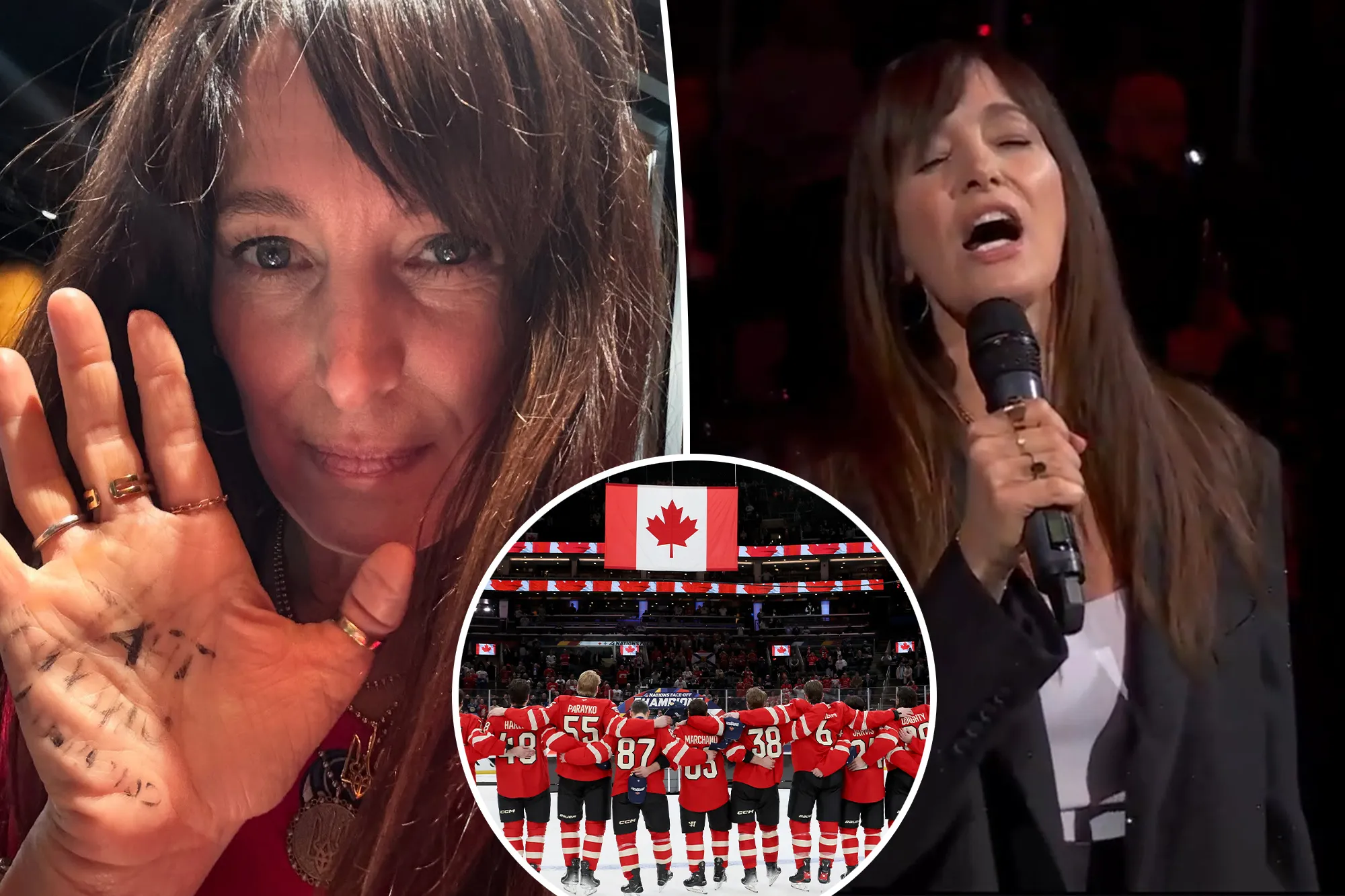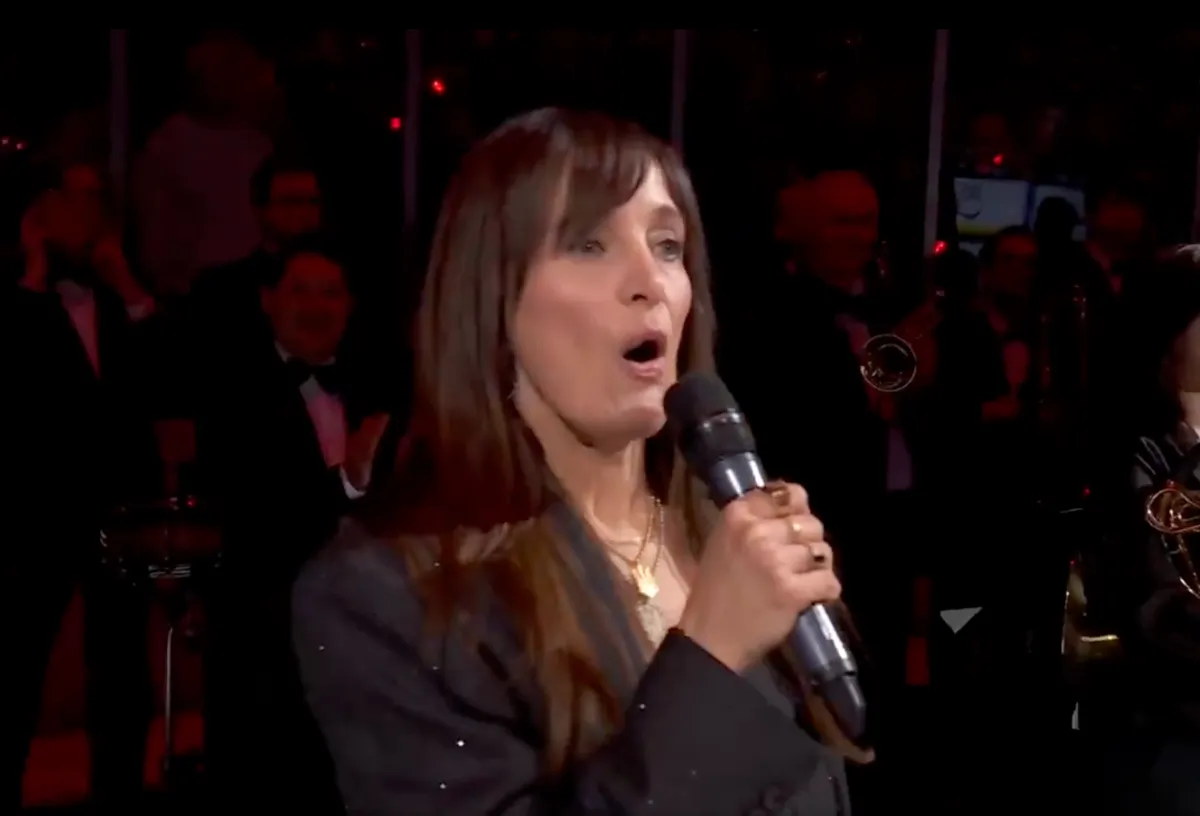In a striking display of artistic defiance, Canadian singer Chantal Kreviazuk took a bold stand at the 4 Nations Face-Off final, altering the lyrics of the national anthem in response to recent political controversies. Her performance not only captivated the audience but also ignited discussions on national sovereignty and artistic expression in politically charged times.
Before a captivated crowd at the championship game between the US and Canada, Kreviazuk delivered a version of “O Canada” that deviated from tradition. Changing the line “in all of us command” to “that only us command,” she made a clear statement about Canadian autonomy and pride. This change, subtle yet profound, was highlighted by Kreviazuk herself, who later shared a photo on Instagram displaying the altered lyric written on her hand.

Adam Gonshor, Kreviazuk’s publicist, explained to The Associated Press that the lyric change was a direct protest against President Donald Trump’s controversial remarks about annexing Canada as the 51st state of the US. This artistic tweak came at a time when tensions between the two nations have been notably high, fueled by Trump’s persistent commentary on Canada during his presidency and his administration’s threats of imposing significant tariffs.
Artistic Expression as a Form of Protest
Kreviazuk’s Instagram post following her performance reflected her deep convictions about the role of art in political discourse: “Art to me is an expression of our truth. And in this very peculiar and potentially consequential moment, I truly believe that we must stand up, use our voices and try to protect ourselves…no – we should express our outrage in the face of any abuses of power.”
Her words resonate with a longstanding tradition of artists using their platforms for activism, echoing the sentiments of many who believe in peaceful yet powerful expressions of dissent. Kreviazuk, originally from Winnipeg, emphasized Canada’s sovereignty and unique cultural identity, drawing a parallel between Canada and Ukraine, both nations proud of their independence and cultural distinctiveness.

The Crowd’s Reaction and the Game’s Outcome
The alteration in the anthem did stir mixed reactions at the event. While “O Canada” was initially met with boos, the mood shifted dramatically by the anthem’s end, with many in the crowd joining in a unified rendition. This complex reaction highlighted the mixed emotions present among spectators, reflecting broader national sentiments.
The game itself was a nail-biter, ending in a 3-2 victory for Canada in overtime, allowing them to clinch the inaugural 4 Nations Face-Off championship. Kreviazuk’s post-game celebration was poignant—a fist pump captured in a photo with the caption, “and justice prevails,” symbolizing not just a victory in hockey but also a moral victory over attempts to undermine Canadian sovereignty.

Diplomatic Echoes and Continuing Debates
Prime Minister Justin Trudeau also weighed in on the situation post-game, emphasizing the resilience and unity of Canada with a pointed message on X (formerly Twitter): “You can’t take our country — and you can’t take our game.” This statement not only rallied support but also underscored the ongoing diplomatic tensions that have been accentuated by the political discourse surrounding the event.
Chantal Kreviazuk’s performance at the 4 Nations Face-Off was more than just an artistic rendition; it was a powerful statement on national pride, artistic freedom, and the role of individuals in shaping political narratives. As Canada continues to navigate its relationship with its southern neighbor, moments like these remind us of the power of art to challenge, unite, and inspire in times of political uncertainty.

I am a writer with a passion for technology and gaming. I write about a variety of subjects, including Esports, Games, Shows, and Sports. I create engaging and informative content for Hiptoro.

